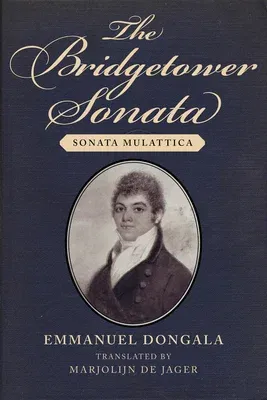In this vividly imagined, richly detailed historical novel, acclaimed
Congolese author Emmanuel Dongala has focused his laser-sharp wit and
wry satirical perspective on the life and times of George Bridgetower, a
young violin prodigy, who, at the age of nine, took the courtly world of
18th century Europe by storm--and surprise, given the youth's unusual
origins: for young George was of mixed- race parentage, known in the
parlance of the day as a mulatto. Though his father Augustus was from
Barbados and dark-skinned while his mother was a German handmaiden in
the Viennese court, this young virtuoso, proclaimed as the "Black
Mozart" was welcomed into the high society of Tout-Paris on the eve of
the French Revolution, and later, after he and his opportunistic father
fled to England, became a court favorite of the Prince of Wales where
his fame spread widely across Europe where he eventually arrived in
Vienna and became close friends with Ludwig Van Beethoven himself.
Despite their fraternal bonding and the fact that they composed and
performed the titular sonata together that Beethoven dedicated to his
"little Moor", the two had an irreconcilable falling-out due to an
unfortunate slight that Bridgetower made about Beethoven's beloved
soon-to-be fiancée Josephine--a schism that resulted in Bridgetower's
banishment from Ludwig's circle and the removal of his name from the
composition's title that the tempestuous composer changed to the
"Kreutzer Sonata", to become one of Beethoven's most famous and enduring
pieces. Brimming with lively detail and dialogue and with cameo
appearances from historical figures such as writer Alexandre Dumas, the
early feminist activist Camille Desmoulins, and the early abolitionist
author, Nicolas de Condorcet, The Bridgetower Sonata brings to light the
issues of race, class, privilege, and with gentle humor reveals the
rampant hypocrisy of that era that uncannily mirrors our own.

